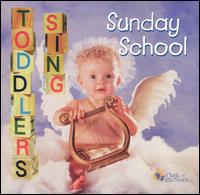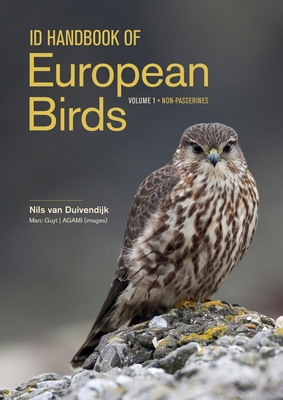
MOODY BLUES
product information
Condition: New,
UPC: 6007530663174,
Publication Date: 07/15/2008,
Type: COMPACT DISC,
Style: POP/ROCK,
description
tracks
The Day Begins: Inc. Morning GloryDawn: Dawn Is A Feeling
The Morning: Another Morning
Lunch Break: Peak Hour
The Afternoon
Forever Afternoon (Tuesday?)
(Evening) Time To Get Away
Evening
The Sun Set
Twilight Time
The Night: Nights In White Satin
Don't Let Me Be Misunderstood
Fly Me High
I Really Haven't Got The Time
Love And Beauty
Leave This Man Alone
Cities
Tuesday Afternoon (Alternate Mix)
Dawn Is A Feeling (Alternate Version)
The Sun Set (Alternate Version Without Orchestra)
Twilight Time (Alternate Vocal Mix)
notes
[On back of case:]"Originally released as Deram SML707 in November 1967." [ The Moody Blues - Days Of Future Passed ]
"(P)(C) 2008 Decca Music Group Limited"
[Imprint on hub:]
"MADE IN USA BY EDC"
[From liner notes:]
"Project coordinated For Universal Music By Joe Black"
"CD Package design by Phil Smee at Waldo's Design & Dream Emporium"
"THE BONUS TRACKS"
Track 8: "BBC Radio session for "Saturday Club" - Recorded May 9, 1967"
"...artists were invited to record sessions at the BBC's studios in Maida Vale, London."
"This recording...is the earliest surviving Moody Blues BBC session to feature Justin Hayward and John Lodge."
"..."Don't Let Me Be Misunderstood" (a hit some years earlier for The Animals)...with Ray Thomas's flute..."
Track 9: "A-side of single"
Track 10: "B-side of single"
"Released as Decca F12607 in May 1967" [ The Moody Blues - Fly Me High ]
"The first Moody Blues release to feature new members Justin Hayward and John Lodge. Recorded on March 30, 1967..."
Track 11: "A-side of single"
Track 12: "B-side of single"
"Released as Decca F12670 in September 1967" [Similar to The Moody Blues - Leave This Man Alone ]
"Recorded on July 17, 1967, Mike Pinder's "Love And Beauty"...has the distinction of being the first Moody Blues recording to feature his use of the Mellotron."
"Justin Hayward's..."Leave This Man Alone," recorded on June 29, 1967, features...flanged guitar..."
Track 13: "B-side of single"
"Released as Deram DM 161 in November 1967" [ The Moody Blues - Nights In White Satin ]
"Recorded on July 17, 1967...released as the single companion to "Nights In White Satin" throughout the world."
Tracks 14 & 15: "Recorded at Decca Studios West Hampstead -
October 24, 1967"
Tracks 16 & 17: "Recorded at Decca Studios West Hampstead -
October 26, 1967"
"In 1967 multi-track recording was essentially in its infancy, with 8-track tape recorders still some months away from arriving in Britain. In common with the techniques adopted by The Beatles on their [i]Sergeant Pepper[/i] album, [i]Days Of Future Passed[/i] was recorded by utilizing two four-track tape machines. Prior to orchestral overdubs being undertaken, the initial four-track tape was mixed down and then transferred to another four-track tape to allow further overdubs to take place. These recordings are initial reductions used as part of the process and serve as a fascinating insight into the ingenuity employed during the creative process." Comes in clear Jewel Case with 20 page booklet.
[On back of case:]
"Originally released as Deram SML707 in November 1967." ( Days Of Future Passed )
"(P)(C) 2008 Decca Music Group Limited"
[From liner notes:]
"Project coordinated For Universal Music By Joe Black"
"CD Package design by Phil Smee at Waldo's Design & Dream Emporium"
"THE BONUS TRACKS"
Track 8: "BBC Radio session for "Saturday Club" - Recorded May 9, 1967"
"...artists were invited to record sessions at the BBC's studios in Maida Vale, London."
"This recording...is the earliest surviving Moody Blues BBC session to feature Justin Hayward and John Lodge."
"..."Don't Let Me Be Misunderstood" (a hit some years earlier for The Animals)...with Ray Thomas's flute..."
Track 9: "A-side of single"
Track 10: "B-side of single"
"Released as Decca F12607 in May 1967" [ The Moody Blues - Fly Me High ]
"The first Moody Blues release to feature new members Justin Hayward and John Lodge. Recorded on March 30, 1967..."
Track 11: "A-side of single"
Track 12: "B-side of single"
"Released as Decca F12670 in September 1967" [Similar to The Moody Blues - Leave This Man Alone ]
"Recorded on July 17, 1967, Mike Pinder's "Love And Beauty"...has the distinction of being the first Moody Blues recording to feature his use of the Mellotron."
"Justin Hayward's..."Leave This Man Alone," recorded on June 29, 1967, features...flanged guitar..."
Track 13: "B-side of single"
"Released as Deram DM 161 in November 1967" [ The Moody Blues - Nights In White Satin ]
"Recorded on July 17, 1967...released as the single companion to "Nights In White Satin" throughout the world."
Tracks 14 & 15: "Recorded at Decca Studios West Hampstead -
October 24, 1967"
Tracks 16 & 17: "Recorded at Decca Studios West Hampstead -
October 26, 1967"
"In 1967 multi-track recording was essentially in its infancy, with 8-track tape recorders still some months away from arriving in Britain. In common with the techniques adopted by The Beatles on their [i]Sergeant Pepper[/i] album, [i]Days Of Future Passed[/i] was recorded by utilizing two four-track tape machines. Prior to orchestral overdubs being undertaken, the initial four-track tape was mixed down and then transferred to another four-track tape to allow further overdubs to take place. These recordings are initial reductions used as part of the process and serve as a fascinating insight into the ingenuity employed during the creative process."
credits
Compiled By [Expanded CD Reissue], Producer [Expanded CD Reissue...Produced By] – Mark Powell
Composed By – Knight, Redwave
Conductor [Conducted By] – Peter Knight (5)
Coordinator [Project Coordinated...By] – Joe Black
Cover [Original Cover Painting By] – David Anstey
Design [CD Package] – Phil Smee
Liner Notes – Hugh Mendl, Mark Powell
Orchestra – The London Festival Orchestra
Photography By [Photographs On Pages 7 & 15 Courtesy] – Pictorial Press
Remastered By [Album Stereo Mix Remastered From The Original Master Tapes By] – Alberto Parodi, Justin Hayward
Remastered By [Bonus Track Remastering By] – Paschal Byrne
Research [Master Tape] – Jayne Byrne
Compiled By [Expanded CD Reissue], Producer [Expanded CD Reissue...Produced By] – Mark Powell
Composed By – Knight, Redwave
Conductor [Conducted By] – Peter Knight (5)
Coordinator [Project Coordinated...By] – Joe Black
Cover [Original Cover Painting By] – David Anstey
Design [CD Package] – Phil Smee
Liner Notes – Hugh Mendl, Mark Powell
Orchestra – The London Festival Orchestra
Photography By [Photographs On Pages 7 & 15 Courtesy] – Pictorial Press
Remastered By [Album Stereo Mix Remastered From The Original Master Tapes By] – Alberto Parodi, Justin Hayward
Remastered By [Bonus Track Remastering By] – Paschal Byrne
Research [Master Tape] – Jayne Byrne
companies
Phonographic Copyright (p) – Decca Music Group Limited
Copyright (c) – Decca Music Group Limited
Made By – EDC, USA
Manufactured By – Universal Records
Distributed By – Universal Music Distribution
Recorded At – Maida Vale Studios
Recorded At – Decca Studios
Remastered At – Logical Box Studios
Remastered At – The Audio Archiving Company
Phonographic Copyright (p) – Decca Music Group Limited
Copyright (c) – Decca Music Group Limited
Manufactured By – Sony DADC
Recorded At – Maida Vale Studios
Recorded At – Decca Studios
Remastered At – Logical Box Studios
Remastered At – The Audio Archiving Company
member goods
No member items were found under this heading.
listens & views

TODDLERS SING SUNDAY SCHOOL / ...
by TODDLERS SING SUNDAY SCHOOL / VARIOUS
COMPACT DISCout of stock
$6.49

WHERE WILL YOU BE CHRISTMAS ...
by WHERE WILL YOU BE CHRISTMAS DAY / VARIOUS
COMPACT DISCout of stock
$11.99
Return Policy
All sales are final
Shipping
No special shipping considerations available.
Shipping fees determined at checkout.





